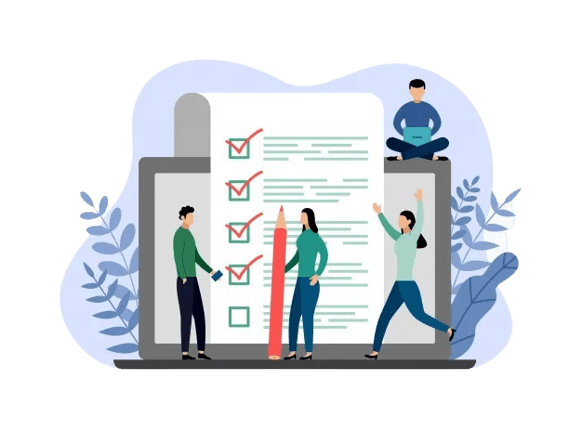Social OCD Assessment
3 Min Free Social OCD Assessment
Who Can Benefit From This Social OCD Assessment?
This Social OCD assessment can benefit individuals who suspect they may be experiencing symptoms of social OCD or social anxiety. It can also be useful for those who are concerned about their excessive worry, self-consciousness, avoidance of social situations, or other related behaviors.
The assessment can provide a preliminary understanding of their experiences and help them decide whether to seek professional help. However, it’s important to note that only a qualified mental health professional can provide an accurate diagnosis and develop an appropriate treatment plan.

Social OCD Assessment Accuracy

The accuracy of a Social OCD assessment depends on various factors. While self-assessment tools can provide a preliminary understanding of one’s experiences, they should not be considered a definitive diagnosis. Social OCD is a complex mental health condition that requires a comprehensive evaluation by a qualified mental health professional.
A thorough assessment involves clinical interviews, observation, and possibly additional psychological tests. Professionals consider various factors, such as the duration, severity, and impact of symptoms, to arrive at an accurate diagnosis. Seeking professional help is crucial for an accurate assessment and appropriate treatment.
Types of Social OCD Assessment
Fear of Negative Evaluation
Assessing the extent to which an individual fears being judged, criticized, or negatively evaluated by others in social situations.
Perfectionism
Evaluating the presence of excessive concerns about making mistakes or the need to be flawless and perfect in social interactions.
Social Comparison
Examining the tendency to constantly compare oneself to others and feeling inadequate or inferior based on those comparisons.
Reassurance Seeking
Assessing the frequency and intensity of seeking reassurance from others regarding social performance and seeking validation of one’s behaviors.
Social Avoidance
Evaluating the degree to which an individual avoids social situations or events due to fear of being judged, embarrassed, or criticized.
Rumination
Assessing the tendency to excessively dwell on and analyze past social interactions, replaying them in one’s mind and focusing on perceived mistakes or shortcomings.
Handling Social OCD
Handling Social OCD, also known as Social Anxiety Disorder, involves a combination of strategies and approaches. Here are some suggestions:
- Seek professional help: Consult with a qualified mental health professional who specializes in anxiety disorders. They can provide an accurate diagnosis and develop an individualized treatment plan.
- Cognitive-behavioral therapy (CBT): Consider undergoing CBT, a highly effective form of therapy for Social OCD. CBT helps identify and challenge negative thought patterns and develop healthier beliefs and behaviors.
- Exposure therapy: Gradual exposure to feared social situations can help desensitize and reduce anxiety over time. Working with a therapist, develop a step-by-step hierarchy of social situations and practice facing them gradually.
- Relaxation techniques: Learn and practice relaxation techniques such as deep breathing, mindfulness, and progressive muscle relaxation to manage anxiety symptoms.
- Support network: Seek support from friends, family, or support groups who can provide encouragement and understanding. Sharing your experiences with others can help reduce feelings of isolation.
- Self-care: Prioritize self-care activities such as exercise, maintaining a healthy diet, getting sufficient sleep, and engaging in hobbies or activities that bring joy and relaxation.
- Challenge negative beliefs: Work on identifying and challenging negative beliefs or assumptions you hold about yourself and social interactions. Replace them with more realistic and positive thoughts.
- Medication: In some cases, medication may be prescribed by a psychiatrist to help manage symptoms. Consult with a medical professional to explore this option.
Remember, managing Social OCD takes time and effort. Be patient with yourself and celebrate small victories along the way.

